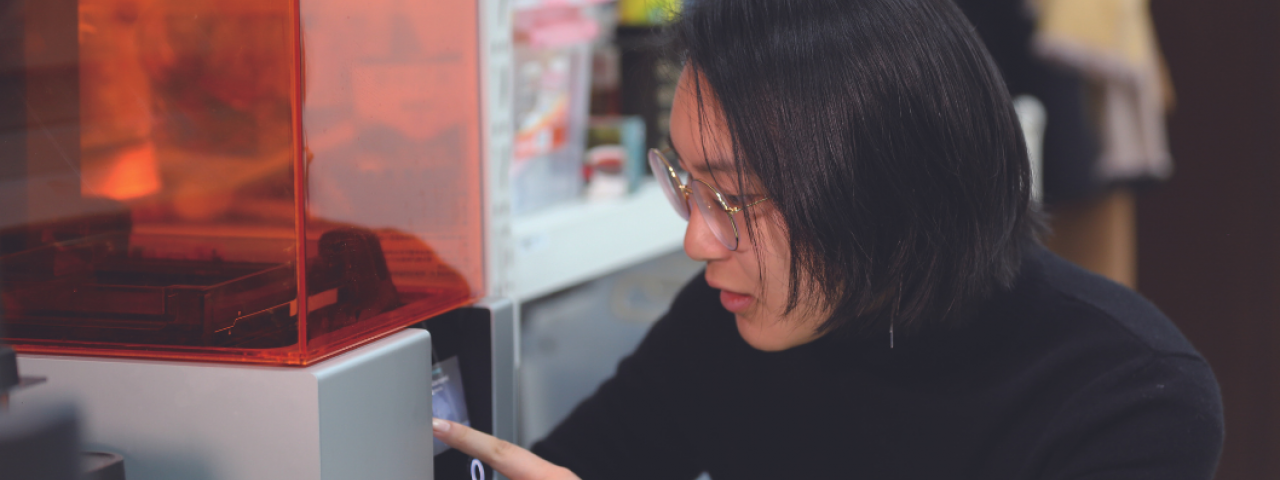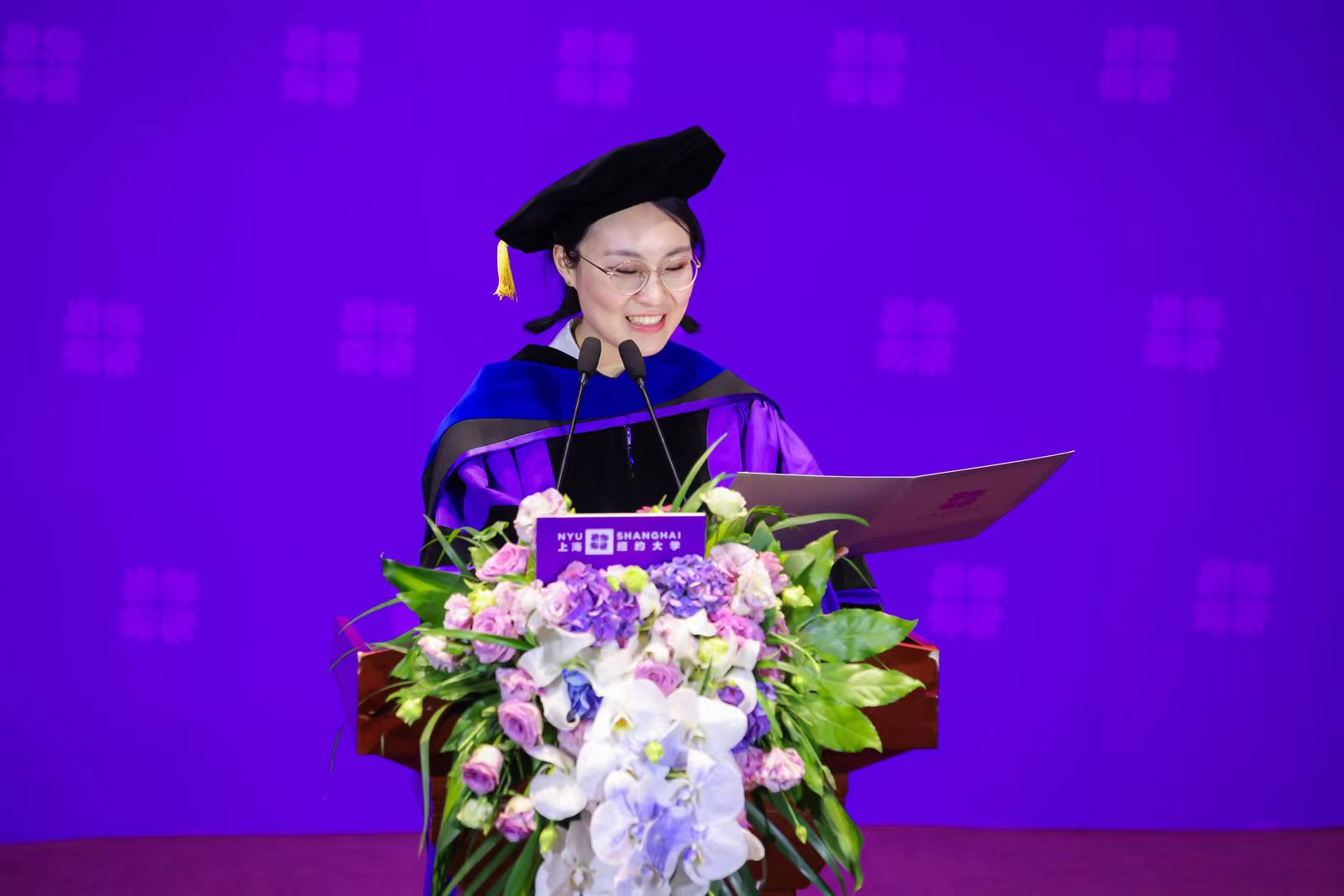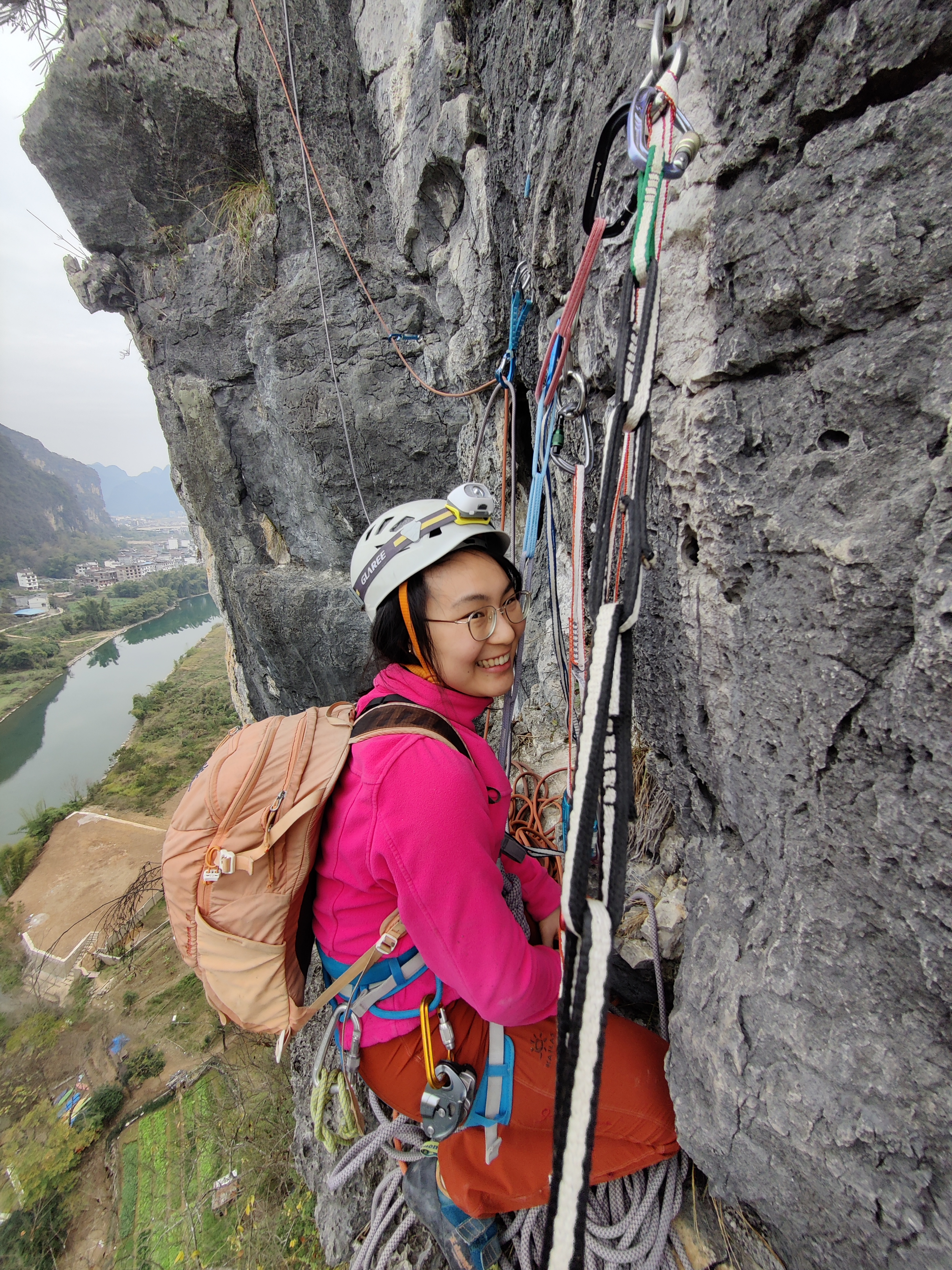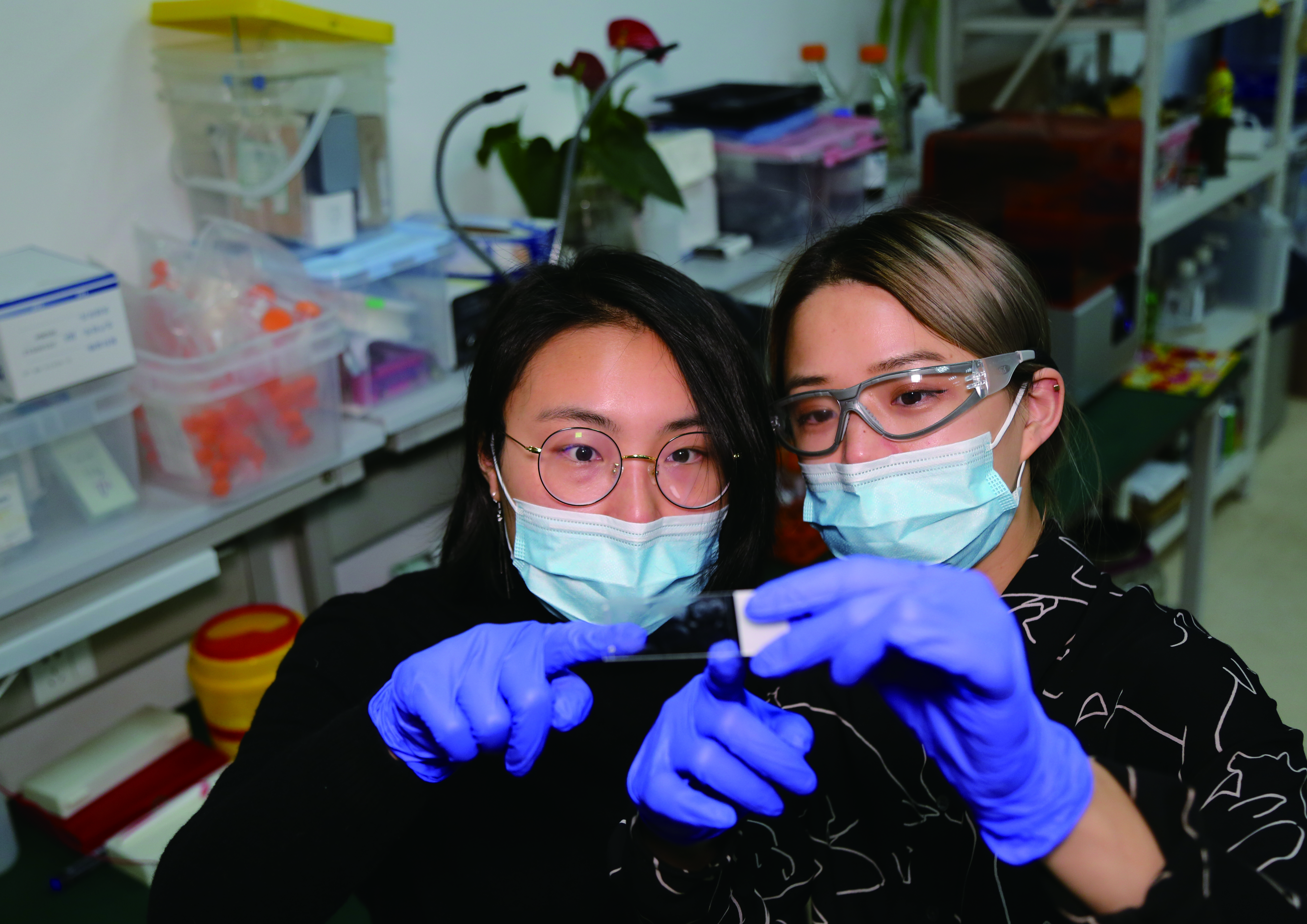Liujunli Li, PhD '23: The Sky's the Limit

Liujunli Li, PhD ‘23, successfully defended her thesis in January 2023 and became NYU Shanghai’s second doctoral graduate in Neural Science. Li was one of the two student speakers at the NYU Shanghai Class of 2023 Graduate Convocation, the first ever NYU Shanghai PhD student to take on this role.

Joining NYU Shanghai’s PhD program in Neural Science in 2017, Li’s research dived into motor planning, orienting movements and spatial cognition. “Basically, we studied how rodents plan their movements, orient themselves in a space and process spatial information.” She explains.
Li’s thesis explores how the frontal orienting field (FOF), a region involved in planning orienting movements, plays its role when rodents orient themselves in different directions. A key fact she unveiled was that the FOF in rodents mainly decides the directions of movement rather than aim for an exact target position. “It proved when rodents move, they pick directions over goals.” Li illustrates. Additionally, she discovered that the FOF cells keep track of the rat's head position in relation to the environment. According to Li, a lot have been known about the neural basis of orienting, such as eye movements, in non-human primates while spatial navigation, which is intimately related to the process of orienting and turning, has been largely studied in rodents. "Our work bridged the two largely separate fields and provided clues about how goal directed movements, which involve both navigation and orienting, are planned in the brain," Li states, highlighting the implications of her thesis.
Li sees her time as a doctoral student as a journey that blends demanding challenges and bumper harvests.
“Back in elementary school, my friends would climb over a brick wall after class to go into the playground of a kindergarten, but I was too afraid to do so.” But Li never stopped fighting the fear. Today, she excels at sports climbing and bouldering. “I feel that I have to free myself from these restraints. Trying to do what I can't is at the core of who I am.” Li argues.
Li did exactly that during her 6 years in the program. “In order to conduct our research, we need to design and implement experiments, but it was really not my strong suit in my undergraduate years.” To study the decision making of rodents, Li and her colleagues had to establish entire test environments and build devices like behavioral boxes for rodents by themselves. “These ‘construction and maintenance projects’ really shoved me way out of my comfort zone at first.” Li recalls.

Li and her labmates encountered a lot of unpredictable problems and failure that required quick wit and improvisation to solve. “We didn’t always have the right tool or material, we had to work with what we have and act swiftly. It was tricky but I learned a lot during the process.” Li reminisces. To Li, doing experiments is a lot like climbing, of both she was originally afraid, and of both she now has a good command. “Experiments and climbing both require me to push myself to make consequential decisions at the eleventh hour. I’m glad I pulled through. My life is about breaking limits.”
Li commends her supervisor, Dr. Jeffrey C. Erlich for constant inspirations. “Dr. Erlich’s curiosity is preeminent. He is passionate about learning everything,” Li points out, recalling the power of Erlich’s example, “He is an expert in neural science with a background in computer science and a profound interest in philosophy.” Li cites the breadth of Erlich’s knowledge as an impactful encouragement for her to keep challenging herself and expand the scope of her learning.
Erlich, for his part, also spoke highly of Li. “Liujunli was a model student”, he commented at her dissertation defense. “She took ownership of her project, widely read the relevant literature, and did very careful and thoughtful analyses on a complex dataset. I am confident she will continue to make important contributions to systems neuroscience."

Now graduating, Li has high expectations of the future of the program. “I think this program will benefit from more constructive and in-depth cooperation with local universities and research institutions in the future,” Li opines. “I had a great experience and I hope future students have an even better one.”
While Li is advancing her career as a postdoctoral researcher at East China Normal University, she is eager to maintain close ties with the NYU Shanghai community. “I hope to contribute to the further development of this community, to be a part of its further bridging with the global as well as with the local, and to support individuals who are still in their journeys at NYU Shanghai.” Li remarked in her speech at the Graduate Convocation.



 沪公网安备31011502017015号
沪公网安备31011502017015号